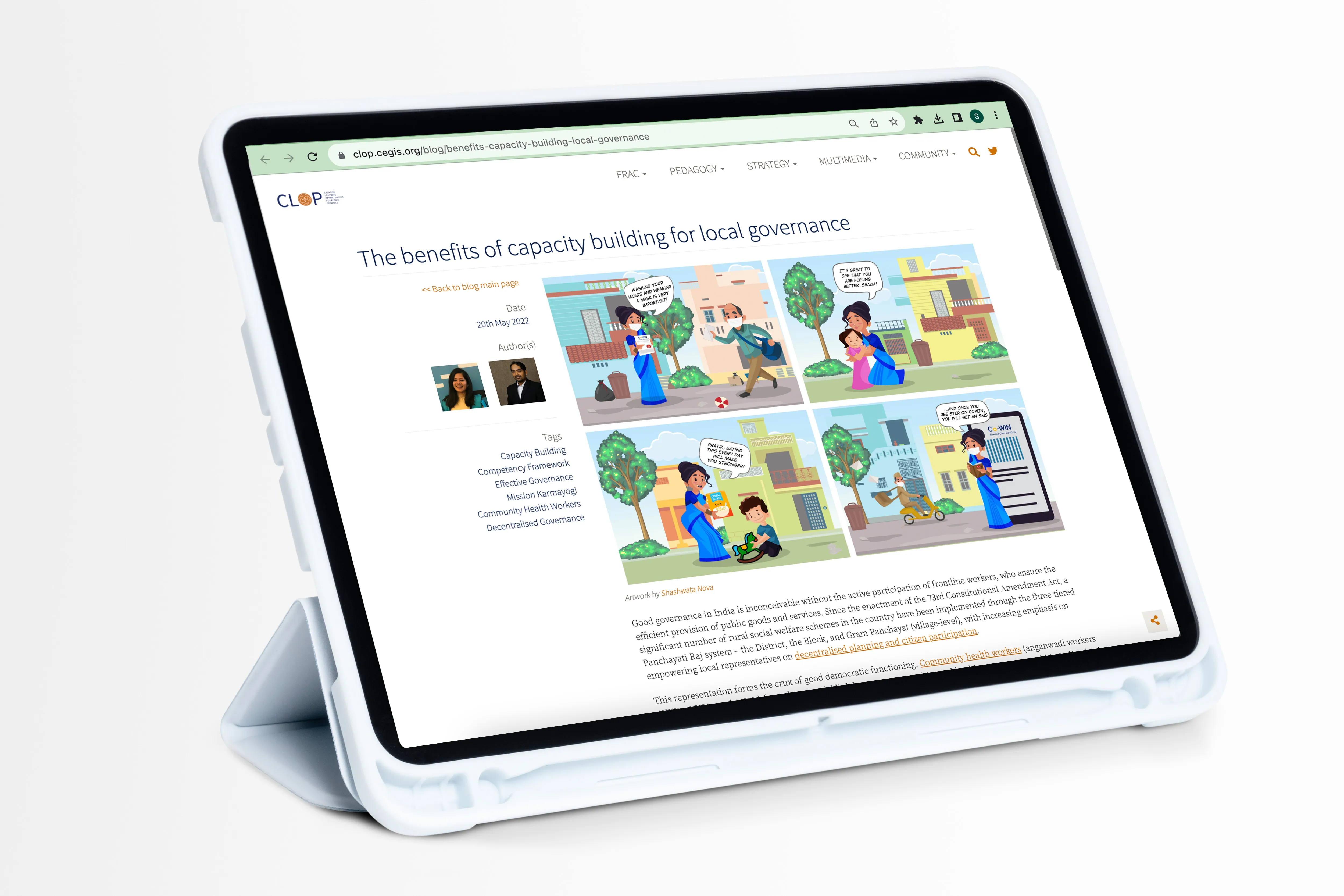
Good governance in India is inconceivable without the active participation of frontline workers, who ensure the efficient provision of public goods and services. Since the enactment of the 73rd Constitutional Amendment Act, a significant number of rural social welfare schemes in the country have been implemented through the three-tiered Panchayati Raj system – the District, the Block, and Gram Panchayat (village-level), with increasing emphasis on empowering local representatives on decentralised planning and citizen participation.
This representation forms the crux of good democratic functioning. Community health workers (anganwadi workers AWWs, ASHAs and ANMs) form the essential link between communities and healthcare systems – within India, they’re responsible for the implementation of many schemes and services under the National Health Mission at the village-level. ASHA workers played a vital role in COVID-19 management by creating awareness and supporting early detection, community surveillance, and management of quarantine centres. Thus, building the capacity of essential health workers (Anganwadi Workers AWWs, ASHAs and ANMs) is critical to ensuring short and medium-term outcomes in health and nutrition.
Capacity building facilitates learning. Just like no organisation can do without building its members’ knowledge, skills and attitude, local governance bodies need to constantly build their own capacity. A capacity-building intervention of government officials enables them to acquire the requisite skills, knowledge, and mindsets i.e. competencies for improved service delivery. However, there are a host of challenges when building capacity in government, particularly local governance.
For instance, Community Health Workers (CHWs) require a specific set of skills to understand and respond to the varied aspects of community health. In spite of frequent home visits CHWs have faced challenges in communicating and driving adoption of key health behaviours such as breastfeeding, and handwashing among young mothers. For example, a study on ASHA workers shed light on two potential areas of improvement: providing role clarity and focusing on improving training of knowledge; and imparting skills like counselling and data management. Their performance was also hindered by a limited understanding of their own as well as their co-workers’ roles, poor training on counselling methods and awareness creation.
In a report by the National Institute of Public Cooperation and Child Development, factors that have undermined the effectiveness of AWWs include irregular supervision, lack of proper training, lack of motivation, work stress, and inadequate involvement of Gram Panchayat representatives. Additionally, the capacity building for the community health workers continues to be contingent on the extent of support from technical partner organisations, which varies according to the project mandate and duration. This overreliance has also fragmented the capacity building ecosystem for community health workers. There is little emphasis on enhancing project management or behavioural skills at the supervisory level which has a substantial impact on performance and productivity.
This necessitates a major shift in capacity building for local governance. An effective approach should involve training needs analysis, role-based training, creating quality training materials, arranging for field training sessions,and engagements with private institutions and research agencies for capacity enhancement. Mission Karmayogi, introduced in 2020, focuses on enhancing the attitudes, skills, and knowledge of government officials through role-based training. It deems a shift from rule-based, supply-driven capacity building to role-based, demand-driven capacity building. It targets individual official’s needs, wants and aspirations through role-specific, just-in-time, lifelong training for government officials.
A similar approach will help frontline workers identify both their day-to-day work as well as the broader roles they are expected to perform in their jobs. In a nutshell, this will help improve the execution capacity of frontline workers' by equipping them with a better understanding of their roles and also provide them with the right tools to build upon their required attitudes, skills, and knowledge.
